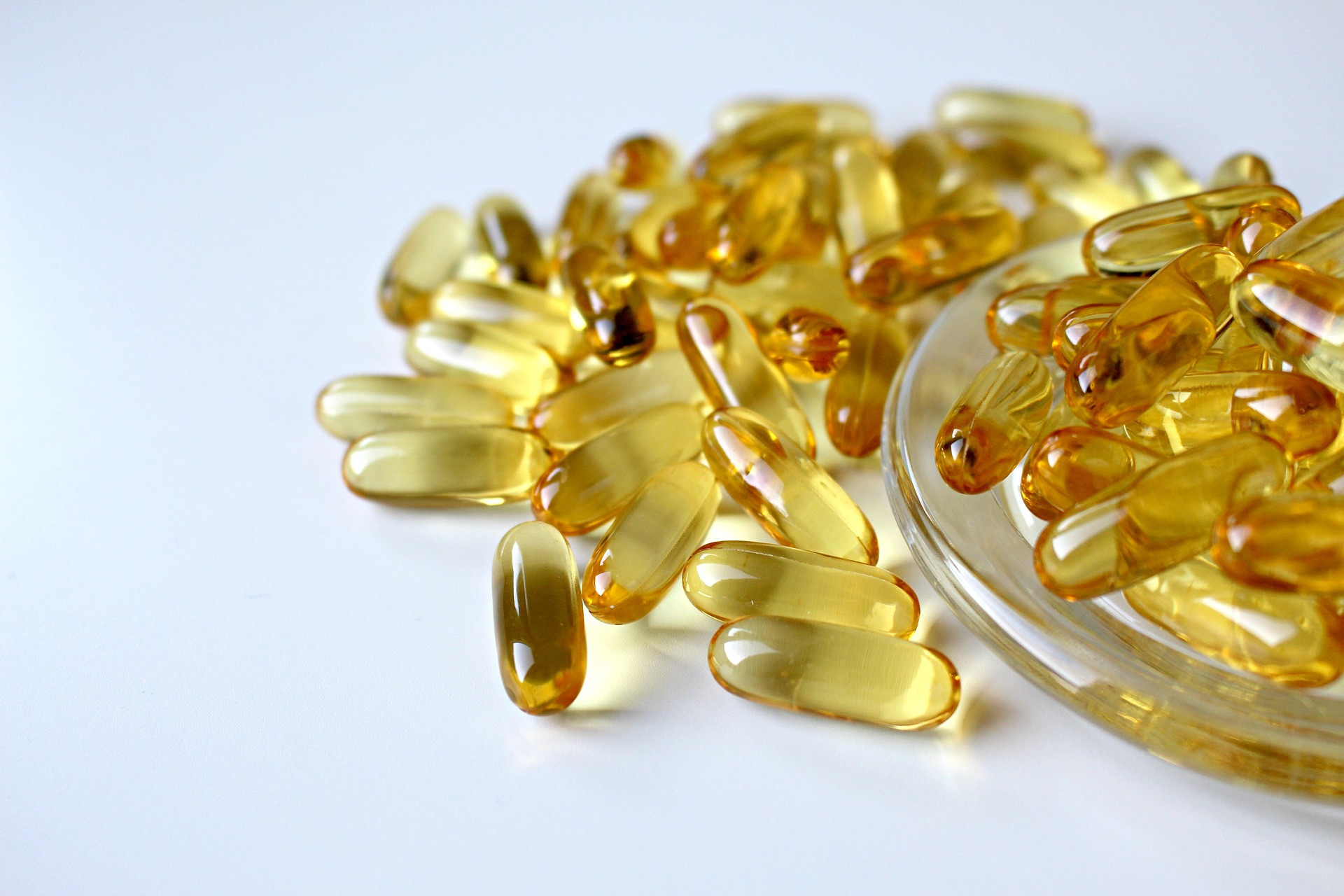Penelitian menemukan bahwa minyak ikan kaya kandungan asam lemak omega-3. Asam lemak omega-3 tidak hanya baik untuk pertumbuhan sel dan aktivitas otot. Asam lemak omega-3 juga baik untuk mencegah penyakit jantung dan strok, membantu mengelola lupus, eksem, dan arthritis rheumatoid.
Minyak ikan mengandung dua jenis omega-3, yaitu asam docosahexaenoic (DHA) dan asam eicosapentaenoic (EPA). Keduanya sangat penting bagi perkembangan organ tubuh termasuk fungsi saraf, retina dan kekebalan tubuh.
Dosis Minyak Ikan
Suplemen minyak ikan baik dikonsumsi anak-anak hingga dewasa. Dosis yang disarankan untuk anak biasanya berbeda-beda tergantung pada merek. Dosis dapat dilihat di balik kemasan.
Sedangkan orang dewasa direkomendasikan mengonsumsi suplemen minyak ikan hingga 6 gram setiap hari. Untuk mengetahui dosis yang tepat sebaiknya konsultasikan dengan dokter agar produk dan dosis diberikan secara tepat sesuai kondisi kesehatan Anda.
Baca Juga: Ketahui Manfaat dan Dosis Minyak Ikan yang Tepat untuk Anak
Efek Samping Mengonsumsi Minyak Ikan
Sama seperti suplemen lainnya, minyak ikan dapat menyebabkan efek samping pada orang yang mengonsumsinya. Efek samping yang dirasakan mungkin berbeda-beda, di antaranya:
Bau mulut dan keringat tak sedap
Ikan memiliki rasa yang enak, tetapi baunya amis dan tidak sedap. Demikian pula minyak ikan dapat meninggalkan kesan bau mulut dan keringat yang berbau tak sedap.
Efek samping ini mungkin tidak dirasakan oleh semua orang. Tetapi ketika merasakannya, Anda mungkin tidak nyaman.
Bau mulut dan keringat tak sedap ini disebabkan oleh asam lemak omega-3 di dalam suplemen yang telah teroksidasi sehingga menghasilkan senyawa dengan aroma tak sedap.
Efek samping ini dapat dihindari dengan beberapa cara berikut:
- Mengonsumsi suplemen minyak ikan berbarengan dengan makanan
- Memilih suplemen minyak ikan berkualitas tinggi dan bebas bahan tambahan yang memperburuk bau mulut dan keringat tidak sedap
- Menjaga kebersihan rongga mulut dengan menggosok gigi secara rutin
- Menjaga kebersihan tubuh dengan benar untuk mengurangi risiko keringat berbau tidak sedap
- Mengonsumsi suplemen minyak ikan sesuai dosis yang direkomendasikan agar mengurangi risiko efek samping
Perdarahan
Asam lemak omega-3 dalam minyak ikan dapat mengurangi produksi tromboksan, yaitu senyawa yang membantu dalam pembekuan darah. Asam lemak omega-3 juga dapat mengurangi kadar trigliserida dalam darah, yang dapat membantu meningkatkan sirkulasi darah dan mencegah pembekuan darah.
Mengonsumsi suplemen mengandung asam lemak omega-3 meningkatkan risiko perdarahan bila meminumnya dengan antikoagulan atau obat tertentu.
Orang yang mengonsumsi obat pengencer darah seperti warfarin sebaiknya tidak mengonsumsi suplemen minyak ikan atau suplemen mengandung asam lemak omega-3 sembarangan tanpa petunjuk dokter.
Gangguan pencernaan
Anda juga mungkin mengalami gejala gangguan pencernaan seperti mual, diare, sembelit dan muntah setelah minum suplemen minyak ikan. Bila ini terjadi, Anda perlu menurunkan dosis suplemen atau bahkan berhenti mengkonsumsinya.
Baca Juga: Buah-Buahan Ini Mengandung Enzim Alami yang Baik untuk Pencernaan
Reaksi alergi
Tidak semua orang cocok dan bisa mengonsumsi suplemen minyak ikan. Beberapa orang mungkin mengalami reaksi alergi setelah minum minyak ikan seperti berikut:
- Ruam atau bentol-bentol di kulit
- Mual, muntah, kram perut
- Sakit kepala
- Hidung tersumbat atau berair
- Asma
- Anafilaksis (reaksi alergi yang mengancam jiwa)
Untuk mencegah dan mengurangi efek samping yang disebutkan di atas, Anda perlu mengonsumsi suplemen minyak ikan sesuai dosis. Konsultasikan dengan dokter melalui aplikasi Ai Care sebelum mengonsumsi suplemen minyak ikan atau ketika mengalami keluhan kondisi kesehatan.
Mau tahu informasi seputar nutrisi, makanan dan tips diet lainnya? Cek di sini, ya!
- dr. Monica Salim
Zawn Villines (2019). What side effects can fish oil cause?. Available from: https://www.medicalnewstoday.com/articles/326206
Mayo Clinic (2020). Fish oil. Available from: https://www.mayoclinic.org/drugs-supplements-fish-oil/art-20364810
Harvard TH Chan. Omega-3 Fatty Acids: An Essential Contribution. Available from: https://www.hsph.harvard.edu/nutritionsource/what-should-you-eat/fats-and-cholesterol/types-of-fat/omega-3-fats/
Marsha McCulloch, MS, RD (2018). 12 Health Benefits of DHA (Docosahexaenoic Acid). Available from: https://www.healthline.com/nutrition/dha-benefits
WebMD (2018). Fish Oil - Uses, Side Effects, And More. Available from: https://www.webmd.com/vitamins/ai/ingredientmono-993/fish-oil
Rachael Ajmera, MS, RD (2019). Should Kids Take Omega-3 Supplements?. Available from: https://www.healthline.com/nutrition/omega-3-for-kids
Information from the American College of Allergy, Asthma & Immunology (2019). Fish. Available from: https://acaai.org/allergies/allergic-conditions/food/fish/










